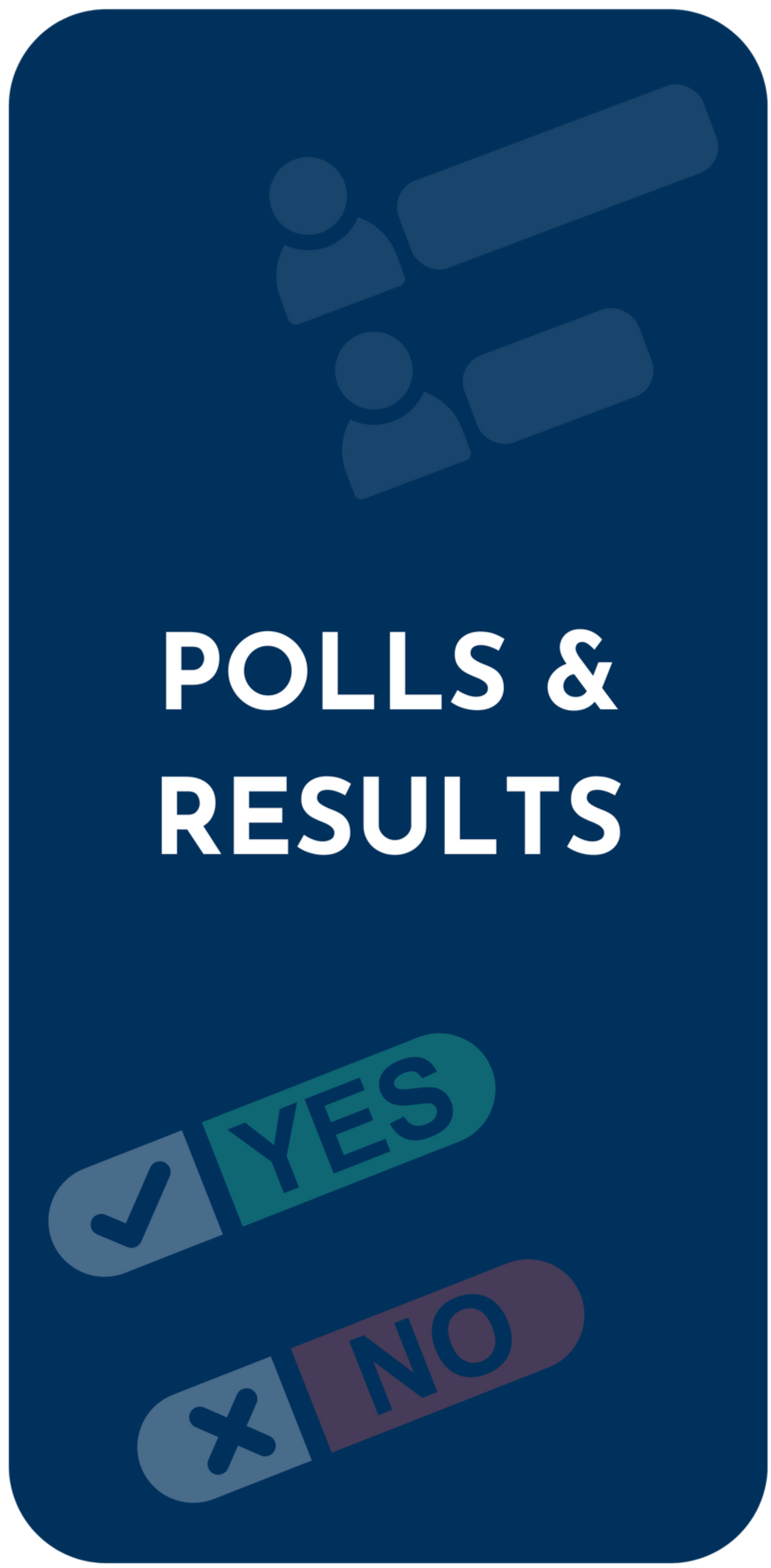
Ontario introduces Bill 149, Working for Workers Act Four
On November 14, 2023, the Ontario Government tabled Bill 149, Working for Workers
Four Act, 2023 (“Bill 149”) which, if passed, will:
- mandate employers to publicly include expected salary ranges in job postings
compel companies to let job candidates know if AI technology will be used during the hiring process. - ban Canadian work experience requirement in job postings
- ban the use of non-disclosure agreements (NDA) in the settlement of harassment and violence workplace cases
- ban unpaid trial shifts, making it clear employers can never deduct an employee’s wages in the event of a dine and dash, gas and dash, or any other stolen property
Bill 149 is expected to provide further protections for employees under various employment statutes, including the Employment Standards Act, 2000 (ESA), the Digital Platform
Workers’ Rights Act, 2022, and the Workplace Safety and Insurance Act, 1997.
AODA Reminder for Ontario Employers!
“Can I see your phone?”: The legalities of the Mike Babcock affair
THE LEGAL CORNER
Do You Need to Name Names in a Non-Solicitation Clause?
Dive into the latest article by Tom Archibald, Employment Lawyer at
HRC Law Professional Corporation, and discover the crucial role Non-Solicitation Clauses (NSCs) play in safeguarding your business from former employees. Tom explores the delicate balance between specificity and generality when it comes to defining off-limits customers or clients. Should they be named individually, or is a broader categorization sufficient? The answer might surprise you!
FEDERAL
Federal legislation bans use of replacement workers
In a recent development, the federal government has introduced Bill C-58, a legislative measure aiming to prohibit the use of replacement workers in federally regulated workplaces during strikes or lockouts. The bill includes an exception for situations involving imminent threats to health and safety or the potential for severe property and environmental damage beyond the capacity of the existing workforce.

Under the provisions of Bill C-58, if a union suspects an employer is violating these guidelines, they have recourse to file a complaint with the Canada Industrial Relations Board (CIRB), triggering an investigative process.
Additionally, the legislation mandates that employers and unions must reach an agreement within 15 days to determine essential work during a strike or lockout. Should consensus be elusive, the CIRB will intervene, making determinations on crucial activities within a 90-day timeframe. The minister retains the authority to refer matters to the CIRB, particularly concerning the protection of the health and safety of Canadians.
ONTARIO

Ontario, the largest province in Canada, has joined the ranks of jurisdictions requiring employers to transparently disclose expected salary ranges in job postings. In a further stride towards fairness, companies are now mandated to inform job candidates about the use of AI technology in the hiring process. The government emphasizes that this initiative is crucial in addressing the existing gender pay gap, where women currently earn $0.87 for every dollar earned by men. This proactive measure seeks to foster greater pay equity and transparency in the employment landscape.
Ontario to ban Canadian work experience requirement in job postings

NDAs to be banned for harassment, violence workplace cases
workplace sexual harassment, misconduct, or violence. This significant measure is part of a broader initiative to update the Working for Workers Acts of 2021, 2022, and 2023, signaling a commitment to greater transparency and accountability in addressing workplace issues.
Province to mandate new critical illness leave for workers
SASKATCHEWAN

Province embarks on The Saskatchewan Employment Incentive
Under this initiative, working parents with a monthly employment income of $500 may qualify for a monthly benefit ranging from $400 to $600, depending on the number of children in their care. Notably, the Saskatchewan Employment Incentive will replace both the Saskatchewan Employment Supplement and the Child Care Subsidy.
Social Services will guide eligible clients through the transition to the new program in the coming year. The release assured that detailed application information and further program specifics will be provided in due course.
Northwest Territories (2.4 percent) reporting lower unemployment rates.
Newfoundland and Labrador recorded the highest unemployment rate at 10 percent. The positive employment trends underscore Saskatchewan’s economic resilience and vitality.
BRITISH COLUMBIA

REMINDER: British Columbia employers mandated to disclose salary ranges for public job listings effective November 1, 2023
or to general recruitment campaigns such as “help wanted” posters that do not specify a
particular job opening.
annual pay transparency reports by November 1st of the years 2023-2027
(on a staggered basis). These reports will provide detailed insights into the compensation
structure within the organization and are said to be a key tool in promoting pay equity.
investment aims to generate 400 new jobs and provide support to 350 small and medium-sized businesses throughout the province
According to a subsequent press release on the same day, the federal government outlined
the areas where the funding will assist businesses by:
- Enhancing supply chain efficiency
- Boosting cleantech competitiveness
- Advancing towards net-zero emissions in construction technology
- Supporting innovation, technology transfer, and adoption
ALBERTA

Premier Danielle Smith hails this transformation as a “new day for health care in Alberta,” emphasizing that the restructuring, overseen by a council of politicians and senior
government officials, is designed to enhance accessibility in a health system facing considerable challenges.
primary care, acute care, continuing care, and mental health and addiction care.
The reform’s key objectives include reducing wait times in emergency rooms and for surgeries, improving access to innovative treatments, and bolstering staff recruitment efforts.
This comprehensive restructuring signals a pivotal shift in decision-making and structure for
Alberta’s health system, aiming to address critical issues and elevate the overall quality of care.
use of the “software engineer” title within the technology sector. The proposed adjustment would permit workers to use this title without requiring a license from the regulatory body,
the Association of Professional Engineers and Geoscientists of Alberta. Currently, individuals without a professional engineering background are prohibited from using the term “engineer”
in their job titles.
industry growth by easing restrictions on job titles, acknowledging the sector’s unique needs,
and contributing to a more agile and responsive workforce.

finance bills, seeks to replace the existing compensation framework known as
allowing increased flexibility in remuneration for public sector executives. This strategic shift
is anticipated to enable competitive wages and improved benefits, fostering a more dynamic
and responsive public sector workforce. The legislation’s primary focus is on non-union public
sector employees at Alberta Health Services, select post-secondary institutions, and certain
public agencies such as the Alberta Gaming, Liquor, and Cannabis Commission.
by Recycling Worx Inc. (RWI), had taken time off due to a collarbone injury sustained at work.
leave, RWI terminated his wage replacement benefits and made a formal offer of modified work. When the worker didn’t accept, RWI considered it a resignation and terminated his
employment. However, the Alberta Court of King’s Bench ruled that the resignation clause in the employee handbook was not binding, as it lacked clarity, and the handbook
fundamentally changed the worker’s common law rights without fresh consideration. The court also found that RWI failed to confirm the worker’s return date and that the worker did
not intend to resign, leading to a wrongful dismissal verdict and an order for RWI to pay $11,250 in damages. The case highlights the importance of clear communication and
consideration when modifying employment terms, especially in cases involving medical leaves.
NEWFOUNDLAND AND LABRADOR

to terminate an employee for using cannabidiol (CBD) oil.
The Newfoundland and Labrador Supreme Court dismissed the organization’s application for judicial review, upholding an arbitration ruling from 2021 that had overturned the employee’s dismissal
suspension imposed on the employee was well-reasoned and free from errors.
symptoms. Subsequently, he failed a drug test, leading to termination for an alleged breach
of the collective agreement It’s crucial to note that CBD is a non-psychoactive compound found in marijuana, distinct from THC. This case highlights the evolving considerations surrounding the use of CBD and underscores the importance of nuanced approaches in workplace policies
Minimum Wage in Canada by Province (2023)
British Columbia: $16.75 per hour, effective June 1, 2023.
Saskatchewan: $14 per hour, effective Oct. 1, 2023. The wage will increase to $15 per hour on Oct. 1, 2024.
Manitoba: $15.30 per hour, effective Oct. 1, 2023.
Ontario: Effective Oct. 1, 2023, the minimum wage will rise to $16.55 per hour from $15.50 per hour. The special minimum wage rates will also increase for:
- Students under the age of 18, who work 28 hours a week or less when school is in session or work during a school break or summer holidays, from $14.60 to $15.60 per hour.
- Homeworkers (those who do paid work out of their own homes for employers), from $17.05 to $18.20 per hour.
- Hunting, fishing, and wilderness guides, from $77.60 to $82.85 per day when working less than five consecutive hours in a day, and from $155.25 to $165.75 per day when working five or more hours in a day.
Alberta: $15 per hour, effective April 1, 2023. Students under 18 years of age who work less than 28 hours per week earn a minimum wage of $13.00 per hour.
Nova Scotia: $15 per hour, effective Oct. 1, 2023.
Prince Edward Island: $15 per hour, effective Oct. 1, 2023.
New Brunswick: $14.75 per hour, effective April 1, 2023.
Newfoundland and Labrador: $15 per hour, effective Oct. 1, 2023.
Northwest Territories: $16.05 per hour, effective Sep. 1, 2023.
Nunavut: $16 per hour, effective April 1, 2023.
Yukon: $16.77 per hour, effective April 1, 2023.
Quebec: $15.25 per hour, effective May 1, 2023.
BLOG
Hosting a Christmas Party at Work: Employer Obligations and Employee Safety
Hosting holiday parties? Holiday parties provide a much-needed break from work, but they also come with the potential for problems. One false move from an employee, and your
business could land in hot water. Read our latest article to know your obligations in relation to hosting Christmas parties at the workplace and ensuring your employees’ safety.

PREVIOUS POLL
When is the AODA Compliance Deadline for 2023?
- November 27, 2023 10%
- December 31, 2023 73%
- January 21, 2023 10%
- March 22, 2023 7%
ACTIVE POLL
When did B.C’s Pay Transparency Act come into effect?
- May 11, 2023
- November 1, 2023
- March 8, 2023
- August 12, 2023
Q&A RECORDINGS

ALICIA LAWRANCE
Executive Assistant,
Advanced Composites Training
“I’d absolutely recommend HR Covered’s services to others, particularly to small businesses, family-owned businesses or even not-for-profits who may not have the resources in place in order to handle these sort of legal issues. It’s absolutely going to be worth
every penny.”








